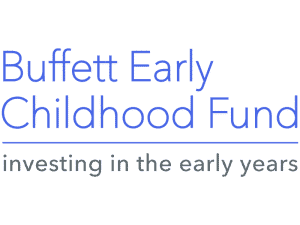 The Buffett Early Childhood Fund (BECF) invests in early childhood practice, policy and science to improve systems and create structural change so all young children and families thrive. BECF has partnered with Start Early for 20 years. BECF has invested a total of more than $90 million in Start Early, collaborating with our organization to launch and expand both the Educare Learning Network and the First Five Years Fund (FFYF) over time.
The Buffett Early Childhood Fund (BECF) invests in early childhood practice, policy and science to improve systems and create structural change so all young children and families thrive. BECF has partnered with Start Early for 20 years. BECF has invested a total of more than $90 million in Start Early, collaborating with our organization to launch and expand both the Educare Learning Network and the First Five Years Fund (FFYF) over time.
All of those opportunities that we have in those first five years to enrich a child's educational and intellectual development, to enrich their social and emotional development – that can have a really big impact on how children do in school, work and life.
Susan A. Buffett, Founder and Chair, Buffett Early Childhood Fund
History and Impact of the Educare Learning Network
 In 2000, Start Early, the Irving Harris Foundation and other partners created the first stand-alone Educare school, Educare Chicago, on the city’s South Side.
In 2000, Start Early, the Irving Harris Foundation and other partners created the first stand-alone Educare school, Educare Chicago, on the city’s South Side.
Shortly after opening its doors, Educare Chicago attracted the attention of Susie Buffett, founder of BECF and a philanthropist, at that time, new to early childhood. Susie Buffett was seeking to improve educational outcomes and bring an effective early education initiative to Omaha, Nebraska. Following consultations with Start Early and a site visit to our Educare school, she decided to invest in establishing an Educare school in Omaha, which opened in 2003.
Through BECF and Start Early’s leadership and partnerships with other Head Start providers, school superintendents and philanthropists around the country, the Educare Network has since grown to 25 birth-to-five schools in 15 states, Washington DC and the Winnebago Tribe of Nebraska. In Nebraska alone, BECF has supported the development of four Educare schools and three infant-toddler centers while fueling state policy and systems change to improve early care and education across the state. They have also inspired and engaged a cadre of philanthropic leaders to invest in early education across the country. As the Educare Network’s founding and longest-standing philanthropic partner, BECF works with Start Early and Educare schools to leverage the Network’s national footprint, invest in and scale innovative approaches and build capacity for policy and systems impact.
BECF’s Role in Accelerating Innovations in the Educare Network
Educare schools are learning hubs that innovate and share best practices to transform the lives of young children and positively impact the broader early childhood field. Through its Acceleration Grant initiative, BECF sparked and invested in innovation across the Educare Network, expanding the impact and reach of effective program and policy strategies developed by Network members to additional Educare schools and other early childhood providers nationwide.
Outcomes of BECF’s Acceleration Grant initiative include the expansion of the Educare Parent Ambassadors program, which develops and empowers parents and family members to use their voices and lived experiences in the advocacy arena. Building on the success of Educare Seattle and Educare Central Maine’s programs, Parent Ambassadors now includes six Educare schools and additional non-Educare programs in states across the country, with plans to further expand. The Acceleration Grant program also supported the scaling of Educare Miami’s Early Science Initiative to other Educare schools, a workforce mindfulness and wellness program from Educare Denver/Clayton Early Learning and an effective educator coaching initiative led by Educare Arizona/Southwest Human Development, among others.
Driving Federal Policy Change Through the First Five Years Fund
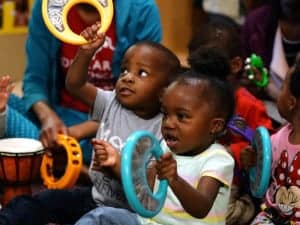 In 2007, BECF joined Start Early in launching the First Five Years Fund, a bipartisan advocacy organization that galvanizes support for greater investment in and access to high-quality learning and care.
In 2007, BECF joined Start Early in launching the First Five Years Fund, a bipartisan advocacy organization that galvanizes support for greater investment in and access to high-quality learning and care.
For fifteen-plus years, FFYF, with support from BECF and other visionary philanthropic partners, has played a crucial role in strengthening and expanding federal early learning programs and building unprecedented federal bipartisan support. This ever-growing momentum, demonstrated by a roughly 60% increase in funding and near-unanimous reauthorization of federal early childhood programs since 2008, represents significant progress and years of dedicated work.
FFYF’s efforts have been integral to maximizing the impact of federal investments supporting the expansion of early childhood opportunities. Additionally, as COVID-19 illuminated long-standing inequities in our country’s systems and policies, FFYF has amplified the role of early learning and care in advancing racial equity, plus the changes needed to create opportunities for all children to thrive. This emphasis on addressing inequities through the promise of quality early childhood education is at the core of BECF and Start Early’s missions, and we are grateful to have a like-minded partner in BECF for this critical work.
One of BECF’s greatest contributions has been inspiring the support of new philanthropic partners to join the movement for quality early learning and care, focusing on closing the opportunity gap.
Start Early is grateful for BECF’s long-term leadership, investment and partnership that continues to drive progress in early childhood education to benefit young children, families and communities nationwide.
The Buffett Early Childhood Fund (BECF) was established in 2005 by Susan A. Buffett. Based in Omaha, Nebraska, the Fund invests in practice, policy and research to close the opportunity gap for the youngest and most vulnerable children and their families in Nebraska and across the country.
The Buffett Early Childhood Fund’s practice investments include the Educare Learning Network; policy investments include the First Five Years Fund and the Alliance for Early Success; and research investments include the Frank Porter Graham Child Development Institute as the national evaluation partner of the Educare Network, the research of Nobel Laureate Dr. James Heckman, and the Harvard Center on the Developing Child.
In Nebraska, BECF supports a wide range of organizations and agencies that are working to close the opportunity gap, address early childhood workforce challenges and improve program quality and increase public funding streams across the state. BECF Nebraska partners include First Five Nebraska, the Buffett Early Childhood Institute at the University of Nebraska and the Nebraska Early Childhood Collaborative, among others.
More Like This
Last month, we hosted our 21st Annual Luncheon at the Hilton Chicago, where we welcomed hundreds of supporters to discuss advancing maternal health equity. Through powerful conversations and presentations with experts in the field, we discussed the maternal health crisis and the inequities in the system impacting Black women, alongside the innovative solutions that can save and transform lives.
If you were unable to join us, you can watch the highlights of an incredibly impactful afternoon below.
Quality maternal health can change a child’s future, and when we support the wellbeing of mothers and birthing parents, we set our children up to make an impact for future generations. Ensuring equitable access to quality health care – before, during and after birth – can help prevent maternal and infant mortality and strengthen the developmental systems that enable children to reach their full potential.
As Luncheon Co-Chair Sam Yagan shared, “…we have no choice but to address the issue of inequality at birth. Not just for the sake of the kids and the moms whose lives we improve, but for all of us, and for our own lives to improve.”
I am so thankful for the opportunity to bring parents, educators and early learning professionals together with business and community leaders to discuss the opportunity in front of us to reshape maternal health. And I want to share a special thank you to our Luncheon Co-Chairs, Suk Shah and Sam Yagan, who did an incredible job setting the stage for maternal health experts, mothers, and doulas, who provided the critical perspectives needed to understand the full picture when it comes to maternal health.
We are grateful for the incredible support and generosity of our donors and event sponsors who helped us raise $1.15 million. Every dollar raised helps our young families and sets the stage for them to thrive. You can still show your support by making a donation today. When we come together and invest in early childhood education, we can transform the lives of our future generation.
Luncheon Co-Chair Suk Shah said it best: “Children with quality early learning experiences, who are healthy and prepared, do better when they enter kindergarten. Parents do better, and they’re more prepared to contribute to the strength of their family and their community.”
Thank you for being part of our 2023 Annual Luncheon, and we hope to see you again soon.
2023 Annual Luncheon Sponsors
A special thank you to our generous individual and corporate sponsors who have joined us in a shared mission to close the opportunity gap and ensure every child has a chance to reach their full potential.
PRESENTING
$100,000
Yagan Family Foundation
CHAMPION
$50,000
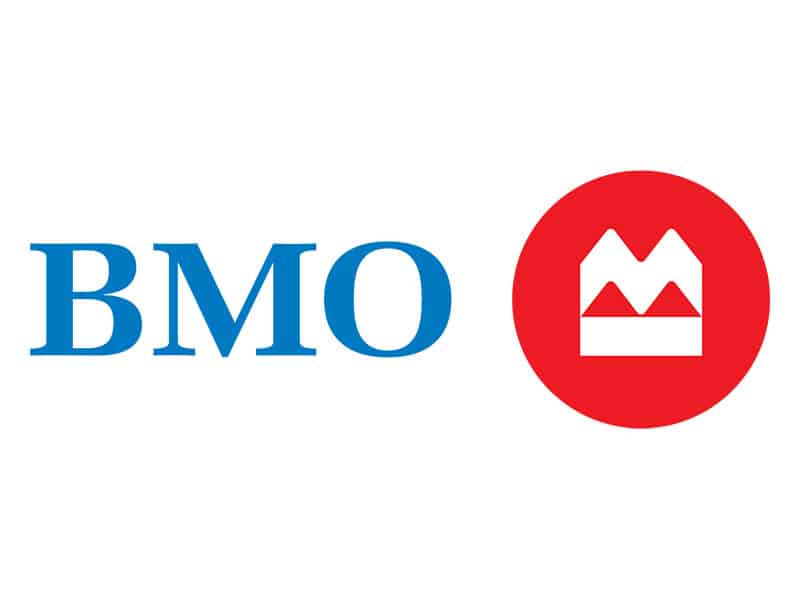 |
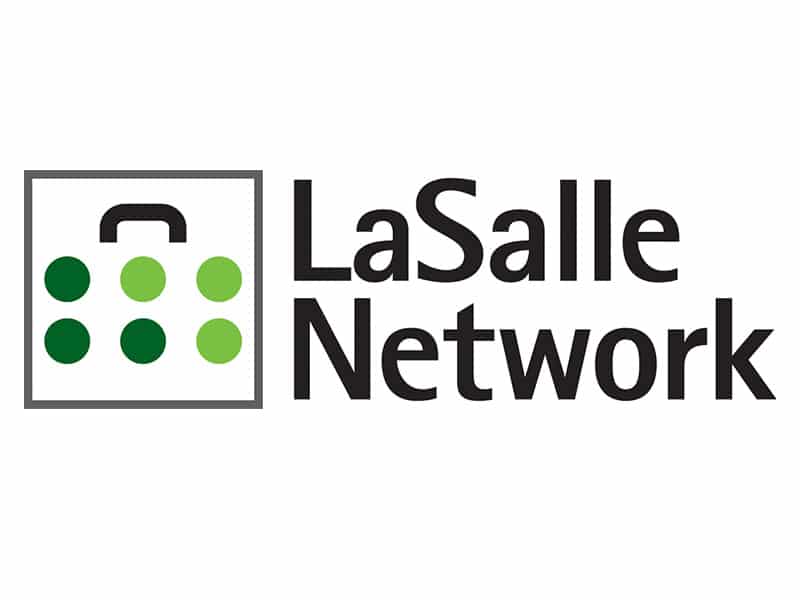 |
Nancy & Steve Crown | The Crown Family
The Hasten Foundation
Diana & Bruce Rauner
Zell Family Foundation
PREMIER
$25,000
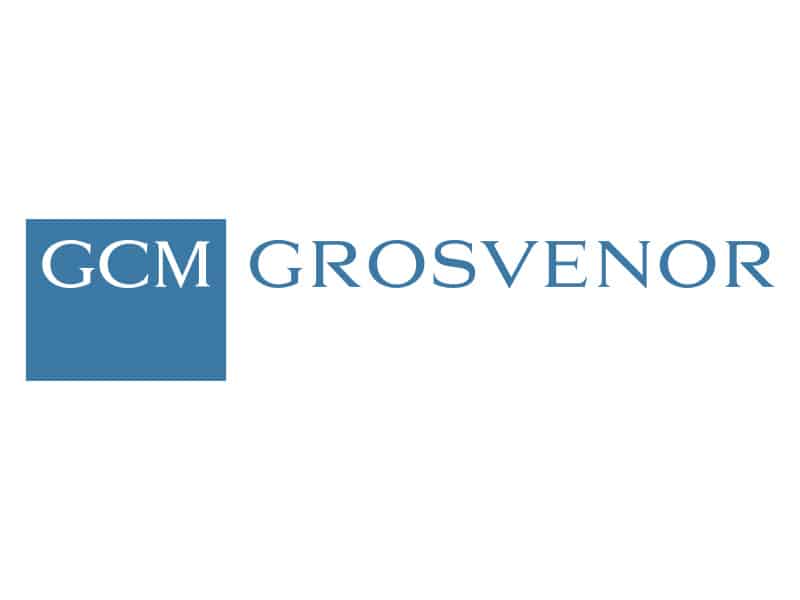 |
 |
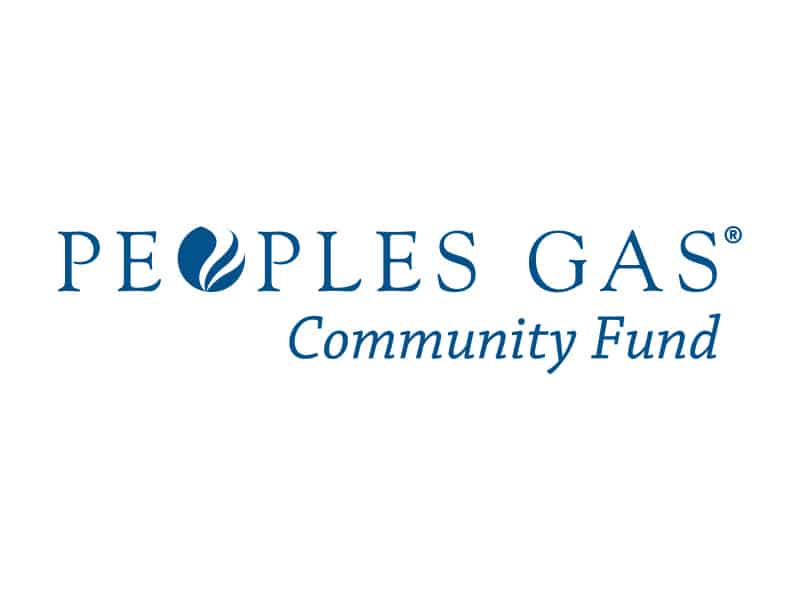 |
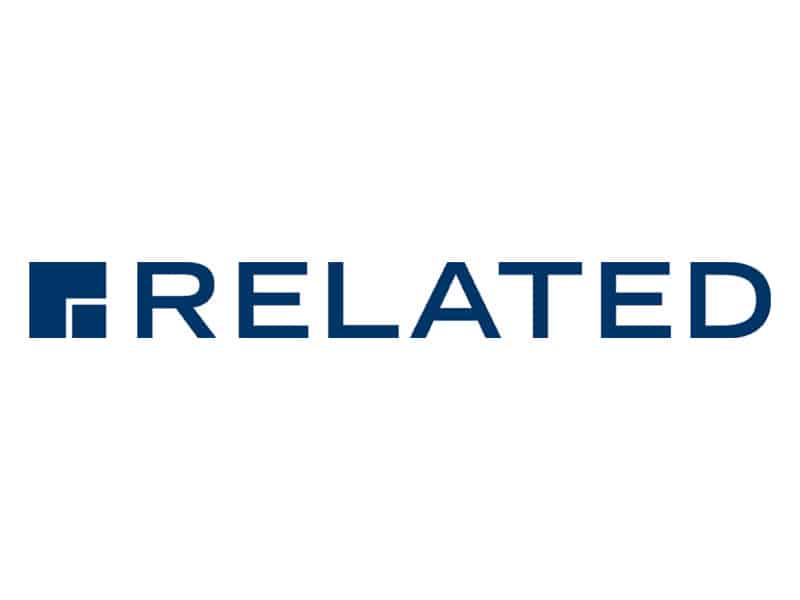 |
Marilyn & Larry Fields
Cari & Michael J. Sacks
Diana & Michael Sands
PARTNER
$10,000
Allstate
Amsive
Susan & Stephen Baird
Meredith Bluhm-Wolf & Bill Wolf
The Boeing Company
Noelle C. Brock, Brock Family Foundation
Jacolyn & John Bucksbaum
The Buffett Early Childhood Fund
Dave & Jane Casper
CME Group Foundation
The Duchossois Family Foundation
Cabray Haines & David Kiley
Harris Family Foundation
ITW
Ron & Fifi Levin, John & Elizabeth Burke, John & Danielle Didrickson | Goldman Sachs
Make It Better Foundation
The Malkin Family
Charles & Brunetta Matthews
PNC
Robert R. McCormick Foundation
Catherine Siegel
Michael & Linda Simon
Steans Family Foundation
Sterling Bay
StoicLane
Sunshine Charitable Foundation
Wilson Garling Foundation
COMMUNITY
$5,000
Ellen Alberding & Kelly Welsh
Ann & Robert H. Lurie Children’s Hospital of Chicago
Anonymous
Baird
Boston Consulting Group | Vicki Escarra
Jimmy & Eleni Bousis
Sarah Bradley & Paul Metzger
The Brodsky Family Foundation
Mark & Shari Coe | Intrinsic Edge
Erikson Institute
The Joseph & Bessie Feinberg Foundation
Fiducient Advisors | Terri & Bob DiMeo
Keith & Rodney Goldstein
Rachel & Devin Gross
Maxwell Gunnill
JP Morgan Chase
David & Gerri Kahnweiler
The Dolores Kohl Education Foundation
Klaff Family Foundation
Learning Resources
Elizabeth & Eric Lefkovsky
Barbara & Dan O’Keefe
Sharon Oberlander
Cathy and Bill Osborn
Plante Moran
Port Capital LLC
Protiviti
Jeanne Rogers & Perry Sainati
Rothkopf Family Charitable Foundation
The Shah Family
Cheryl & Craig Simon
Ken & Kathy Tallering
Robin Loewenberg Tebbe & Mark Tebbe
Laura Thonn
Anne & John Tuohy
Ulta Beauty
Mike & Robin Zafirovski
CHICAGO – APRIL 25, 2023 – On Tuesday, April 25, Start Early hosted its Annual Luncheon and celebrated 40 years of working to close the opportunity gap through quality early childhood learning and care programs and services. The gathering of business, civic and philanthropic leaders called attention to the critical role of maternal health and investing in services that support the earliest years of a child’s life – before, during and after birth. It was also announced that the organization received a $10 million donation from MacKenzie Scott through her foundation Yield Giving, which provides Start Early a transformative opportunity to broaden its reach and serve more families with critical programs in communities nationwide.
“These funds will allow us to make deliberate investments to broaden Start Early’s impact and help ensure sustainability decades to come, further advancing our commitment to children, families and future generations,” said Start Early President Diana Rauner. “This unsolicited gift also serves as tremendous validation of the hard work and investments of our staff, our board and our philanthropic partners. We hope our guests’ knowledge from this event will trickle out into the community and supplement the work that Start Early is already doing to create a more equitable and respectful level of care for all women, birthing parents and their babies.”
Despite the continued advancements in medical care and technology, the country’s maternal and infant mortality rates are far higher than those in similarly large and industrialized countries. Women of color, especially Black women, experience disproportionate access to maternal health care, putting them at increased risk for poor maternal and infant health outcomes compared to their white peers. As lasting effects of the pandemic set in and new research demonstrates worsening realities for birthing parents, Start Early felt it critical to devote its annual event to address and offer solutions to the maternal health crisis. The program educated attendees about the systemic inequities impacting women of color and elevated innovative solutions for saving lives and improving those first experiences of new parents and their babies.
The program, which took place at Hilton Chicago on 720 S. Michigan Ave., featured an inspiring lineup of stories from educators, parents, corporate leaders and champions for early learning, including strategic advisor for children and youth in King County, Washington, Sheila Capestany. Capestany discussed the maternal health crisis and its root causes, highlighted its devastating data and proposed policy changes necessary for reproductive and health care equity.
Celebrating 40 years of impact, Start Early is a champion for quality early learning and care and has made tremendous strides toward closing the opportunity gap for our youngest learners. From its roots directly serving families and children on Chicago’s South Side and in rural Illinois to its work today impacting early childhood programs and policies nationwide, Start Early’s focus is grounded in the fact that starting early to nurture attachments between children and adults is essential to a child’s present and future well-being.
Contact Press@StartEarly.org for more information and media opportunities.
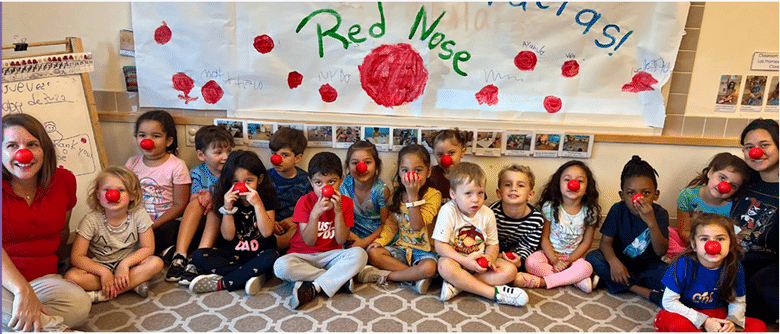
Comic Relief US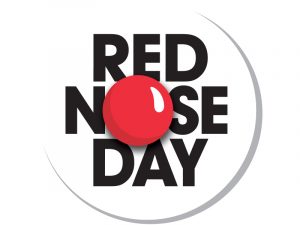 (CRUS) is committed to breaking the cycle of intergenerational poverty. Through the power of entertainment, CRUS drives awareness and amplifies the voices of children and families living in under-resourced communities.
(CRUS) is committed to breaking the cycle of intergenerational poverty. Through the power of entertainment, CRUS drives awareness and amplifies the voices of children and families living in under-resourced communities.
You might know them best from Red Nose Day, their annual fundraising campaign that brings people together to laugh and have fun, while raising money and awareness to ensure all children are safe, healthy, educated and empowered in the U.S. and abroad. Through Red Nose Day, Comic Relief US engages the public and nonprofit and corporate partners to raise funds and invests them back in nonprofit organizations, many of which are community-led with programs focused on tackling the root causes and consequences of poverty and social injustice.
The Educare Learning Network has been a proud partner of CRUS and Red Nose Day since 2018. Since 2000, when Start Early developed the first Educare school in Chicago, the Educare Learning Network has grown into a national network of 25 birth-through-age-five schools in 15 states, Washington DC and the Winnebago Tribe of Nebraska. We are a network of learning hubs that innovate, evaluate and share best practices to transform the lives of young children in disinvested communities and positively impact the broader early childhood field.
Start Early, the Educare Learning Network and CRUS partner to improve the lives of children and families by investing in Educare schools to create training opportunities and enriching early learning programming that benefits Educare staff, children and families. For the past five years, funds awarded to Start Early have supported professional development, consultation and other learning opportunities for 2,000+ staff members across the Educare Network. Red Nose Day funds have also allowed the 25 Educare schools to develop new and innovative programs in the areas of science, tech, engineering, the arts and math (STEAM); social-emotional learning; family engagement; and diversity, equity, inclusion and belonging (DEIB) and have impacted 5,000+ children and their families.
The staff now look at STEAM in a different light. What was once before avoided is now implemented without prompting. Messy play, experiments, recipes, engineering and more are now implemented with ease.
Educare school leader on Red Nose Day-funded programming
Start Early and the Educare Learning Network feel fortunate for the many opportunities we have as a grantee partner of CRUS to enhance our programming and connect with new audiences. Being part of Red Nose Day has offered Educare opportunities for national media exposure, helping us share the importance of early learning. A great example of this was in May 2022, when an Educare Chicago Mentor Teacher was featured in a segment on the Kelly Clarkson show. This was an opportunity for TV viewers around the country to be introduced to the Educare name and mission, helping the public understand the value of our work and high-quality early childhood education programs. Additionally, the Educare Network’s promotion of Red Nose Day in 2022 was particularly successful as we shared nearly 100 social media posts and other communications during the campaign and reached an audience upwards of 35,000 across multiple platforms and channels.
We continue to be grateful for our partnership, and deeply appreciative of the important role the Educare Learning Network plays at multiple levels of the early childhood education sector, and the much-needed support the Educare Learning Network provides to children, early childhood education providers, and caregivers.
Comic Relief US
Since its launch in the U.S. in 2015, Comic Relief US (CRUS) has fundraised over $380 million, with over $324 million raised through its signature Red Nose Day campaign to end child poverty.
Comic Relief US invests in nonprofit organizations, many of which are community-led, with programs focused on tackling the root causes and consequences of poverty and social injustice. CRUS supports initiatives that advance the health, safety, education and empowerment of children and caregivers in communities impacted by intergenerational poverty.
Funds raised through Red Nose Day in the U.S. support programs across all 50 states, D.C. and Puerto Rico and around the world, ensuring all children are safe, healthy, educated and empowered.
More Like This
Home visiting is about finding strengths in human connection, building trusting relationships – and all the messy stuff in between.
After a remarkable three decades of shaping the home visiting landscape, Quen Zorrah – Lead Facilitator and Co-Developer of NEAR@Home – is retiring.
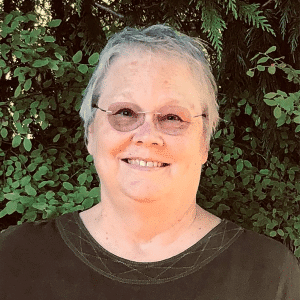
Start Early Washington shares our collective love, respect and appreciation for Quen Zorrah and her lifetime of work supporting human connection and relationship building between children and their caregivers. Her expertise in supporting families has shaped how programs work with families to promote strong relationships.
Raising the Bar
Prior to her time with Start Early Washington, Quen was a public health nurse and one of the first nurses in the nation to provide home visiting services to families through Nurse-Family Partnership. Her work has integrated infant mental health and Neuroscience, Epigenetics, ACEs, and Resilience (NEAR) science into home visiting through teaching, coaching and reflective supervision. As the Lead Facilitator and Co-Developer of NEAR@Home, Quen has developed trauma-informed practices for building resilience and uniquely positions home visitors to safely and effectively talk with families during a critical period of development – the earliest years of a child’s life.
“I was fortunate enough to work with Quen for 20 years, as a teacher, supervisor, consultant, co-author and an esteemed colleague. I’ve never known anyone who got what reflective listening was, or who was freer of professional pretense, than Quen. She is so unpretentious that it would be easy to underestimate her real genius for this work.” — Dr. Marian Birch, DMH, Psychologist
The Journey
Like many staff on Start Early Washington’s home visiting team, Quen’s firsthand experiences as a mother led her to pursue a lifelong career devoted to children and their families.
At the age of 19, Quen distinctly remembers the first day she met a home visitor. “My child was only two days old when a woman from King County Public Health knocked on my door. She was so humble and respectful, but as persistent as a boot wedged in my doorway! Somehow, she knew how much I needed to hear words of compassion.” Seemingly, Quen’s home visitor intuitively knew that Quen was in need of positive reinforcement and support as a young, first-time parent.
Quen admired the compassion and hopefulness home visitors brought to her life, but she was still apprehensive at the thought of home visiting with her second child. “I wasn’t as put together and I was worried about what they would think of me, my mess and my reality.” Unsurprisingly, her home visitors lauded her efforts and bolstered her confidence, helping her tackle the many challenges of parenting. With each visit, Quen’s self-talk started to shift substantially, “College is achievable!” “My voice matters!” “I can do this!”
Quen’s home visitors changed the course of her life. “Not only my life but my kids’ lives as well. We take for granted the power of finding strengths and being human with each other.” After witnessing the power of home visiting support, Quen was determined to make a difference to others just as her home visitors did for her; she was determined to be a catalyst for change.
Quen completed her GED and carried her remarkable determination and fortitude as a young parent with her to nursing school at Seattle Central Community College. Upon graduation, Quen worked as a nurse for renowned medical centers and rural based community hospitals in remote mountain towns, before joining Nurse-Family Partnership, where she flourished for the next 20 years, supporting families with young children, pregnant women, grandparents, foster parents and fathers as primary caregivers.
Quen’s passion and perseverance to provide comfort, compassion and support led her to the creation of the highly successful, nationally acclaimed NEAR@Home toolkit, a tool providing home visitors with information and skills to talk about trauma and Adverse Childhood Experiences (ACEs) during home visits, while building trust and hope.
“Quen reminds me that I do not always have to fix things; my presence alone can bring value to any given situation.” — Amy Houser, Consultant
Finding Balancing
Home visitors often face their own challenges with trauma and Adverse Childhood Experiences (ACEs). These lived experiences bring motivation and strengths to the field of home visiting, but they also add another level of strain. The exposure to challenges and trauma of others can contribute to burnout and poor mental and physical well-being. Quen notes gardening as her antidote to secondary traumatic stress or “compassion fatigue” inherent to those supporting families directly.
Quen appreciates the balance that gardening brings to the intensity of her work. Influenced by her great-grandmother, Quen cherishes time outside to slowly walk around her garden and admire each of her plants. “Gardening is a wonderful balance to all seriousness. It’s creative and offers exercise and most importantly, if I mess something up in my garden, I just compost it. But of course, it’s not that simple with humans. With plants, the worst that will happen is a compost pile.”
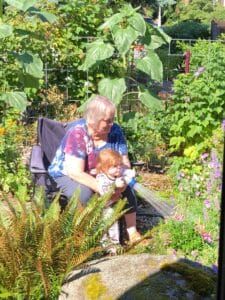
“Quen’s thoughtfulness, reflectiveness, kind, calm and peaceful way of being, is something I strive to incorporate into my work and personal life.” — Amanda Costello, Director of National Home Visiting, Start Early
Home visiting stories of success and triumph were also a grounding element for Quen. She recalled all the knowledge accumulated over the years: “That’s what kept me going for so long. When working long hours or flustered with bureaucracy, budgets and funding, I’d think about the stories we accumulated. My hope for home visitors is that they will share stories for inspiration and as a guide to move past challenges together.”
A Career to Remember
“Quen has shown me how to focus on people and building relationships before focusing on the work.” — Valisa Smith, Executive Director, Start Early Washington
While Quen may no longer be part of the thick of home visiting life, her profound impact has left a lasting legacy, disrupting the way we interact with each other by offering tools that will transform how we build and foster relationships for generations to come.
I’m hoping some of our systems are at a pivot point and we reach a balance where we can value community voice, recognizing that parents know exactly what they need, as much as we value data.
— Quen Zorrah
Start Early Washington is proud to be part of Quen Zorrah’s story. Her ability to reach parents and children at an intrinsic human level is immeasurable. We are honored to continue to share NEAR@Home with the world – a toolkit designed to allow users to rediscover hope and strive toward healing, fostering strong and healthy relationships.
We thank Quen for her incredible contribution to the field, honor her on all she has accomplished in her professional and personal life, and congratulate her on retirement and her future endeavors.
Yesterday, the United States’ 117th Congress passed its end-of-year omnibus bill, which notably included reauthorization of the Maternal, Infant, and Early Childhood Home Visiting (MIECHV) Program. The final package includes the highest level of federal investment in and commitment to home visiting in over a decade – doubling federal investments to $800 million over five years, a doubling of the Tribal set-aside from 3% to 6%, development of new home visiting data dashboards and the continuation of virtual home visits.
This MIECHV reauthorization cycle has been a clear testament to strong bipartisan recognition that home visiting, as well as other early childhood programs, are focal priority areas for families and the early childhood workforce. Start Early is especially proud of the strong showing of support from the Congressional delegations in our home states of Washington and Illinois. We are particularly grateful to Illinois Representative Danny K. Davis (D-IL7) for serving as a true home visiting champion and the original co-sponsor of the House of Representatives’ MIECHV reauthorization bill.
An estimated 140,000 families across the United States partner with home visitors each year to enhance parent-child relationships and improve physical health, mental health, learning and safety outcomes. With this five-year reauthorization and expanded funding levels, MIECHV-funded programs will have increased stability and resources to enhance existing services, reach new constituents, increase compensation for home visitors and continue to evaluate their impact on children and families.
Start Early is deeply proud and thankful to be a member of the National Home Visiting Coalition Steering Committee and for the Committee members’ partnership in advancing this critical funding source in Congress over the last several months. We join other Coalition members in thanking Congress and recommitting ourselves to partnering with the Department of Health and Human Services in support of MIECHV implementation in states and communities across the country.
In addition to reauthorizing and expanding MIECHV, the final package includes funding for a wide array of family-facing programs, including:
- The Child Care Development Block Grant (CCDBG), funded at $8,021,387,000 (a 30.1% increase over the FY 2022 level)
- The Preschool Development Grant (PDG), funded at $315,000,000 (a $25,000,000 increase over the FY 2022 level)
- The Individuals with Disabilities in Education Act (IDEA), funded at $420,000,000 for Part B (an increase of $10,451,000 over the FY 2022 level), $540,000,000 for Part C grants for infants and toddlers (an increase of $43,694,000 over the FY 2022 level), and $14.19 billion grants to states (an increase of $850,000,000 over FY 2022 level)
- Head Start, funded at $11,996,820,000 (an increase of $960,000,000 over the FY 2022 level)
- The National Child Traumatic Stress Initiative, funded at $93,900,000 (an increase at $12,000,000 over FY 2022 level)
- Child Care Access Means Parents in School (CCAMPIS), funded at $75,000,000 (an increase of $10 million over the FY 2022 level)
These comprehensive investments align closely with Start Early’s long-held belief that we must strengthen and expand the many, intersecting systems that serve children and families to create a continuum of support that meets their diverse needs. The suite of family-serving programs supported by Congress in their year-end spending bill supports the mental, physical and economic needs of caregivers and the early childhood workforce.
While we celebrate these major wins for children and families, we recommit ourselves in the new, 118th Congress to advocate for early childhood supports that were not included in the omnibus. The Child Tax Credit and Child and Adult Care Food Program (CACFP) are critical supports for families with low incomes, and Start Early is disappointed that these programs were not included in Congress’s year-end package. We call on the new Congress to partner with the early childhood field to extend and expand these critical programs in line with the new, approved investments and prioritize the health and success of children, families and the early childhood workforce.
Thank Congress for Championing Home Visiting
Thank your legislators for renewing and expanding critical home visiting investments in the 117th Congress’s Omnibus Bill.
Start Early Leaders React
In response, Start Early leaders issued the following statements.
“Start Early is proud to celebrate the reauthorization and expansion of the federal Maternal, Infant & Early Childhood Home Visiting program. Congress’ final end-of year funding package, which also included several other important early childhood investments, demonstrated a historic and bipartisan display of the critical need for the prioritization of families with young children.
Start Early was founded on the notion that starting early and nurturing the attachments between children and caregivers are essential to a child’s present and future well-being. As such, with home visiting at the heart of Start Early’s work for over 40 years, we are committed to continue expanding the reach of programs and services to help ensure all families can experience those positive relationships and build a foundation of health and success for their newborn.
On behalf of children, families and home visiting programs across the country, I thank and commend the steadfast work of Congress and advocates who listened, shared personal stories, uplifted expertise and took action, efforts which made these transformative investments reality.”
– Diana Rauner, President
“Start Early applauds Congress’ final omnibus bill, which contains long-needed investments in several early childhood programs and services and particularly, the historic reauthorization of the Maternal, Infant & Early Childhood Home Visiting Program.
As part of the National Home Visiting Coalition’s Steering Committee, Start Early witnessed the successful impact of dedicated and collaborative efforts and expert-backed recommendations on behalf of America’s families and young children. We are proud to be a part of this critical work, and we expect this additional funding will transform and enhance home visiting programs through additional resources and capacity building.
Our team is eager to get to work with state and local legislators to effectively incorporate the package’s approved early childhood funds and policies into communities to reach more families and young children across the country.”
– Yvette Sanchez Fuentes, Vice President, National Policy
“Caring for a newborn child is one of life’s most important roles, yet far too many parents do not have equitable access to resources and supports. I applaud Congress for recognizing this reality and including the Jackie Walorski Maternal & Child Home Visiting Reauthorization Act in its end-of-year funding package, increasing funding and expanding home visiting services for communities nationwide.
The partnership between families and home visitors, built on a foundation of trust, supports healthy parent-child relationships, and encourages positive family health, development and overall well-being. All of these factors ultimately lay a strong foundation for a child’s health and success, so with this latest win, more children will have the opportunity to thrive.”
– Kelly Woodlock, Vice President, National Home Visiting
“The federal Jackie Walorski Maternal & Child Home Visiting Reauthorization Act is an historic and transformative investment that will support more families, communities and home visiting programs in Washington state with essential services than ever before.
I continue to be inspired by the thousands of families reached by MIECHV’s home visiting services in Washington today and the perseverance and dedication of the home visitors who support them. My hope is that this expanded funding will provide the resources and capacity to reach more families – particularly those in tribal communities and rural areas – with home visiting’s critical tools and resources to help families thrive.
On behalf of Start Early Washington and families and home visitors across the state, I applaud Congress and advocates for making MIECHV reauthorization and expansion a priority. We look forward to continue building our decades of home visiting expertise and direct work here in Washington to increase access to home visiting services for families statewide.”
– Valisa Smith, Executive Director, Start Early Washington
 For over 40 years, Start Early has worked directly with families and children from before birth to entry into kindergarten. We provide doula and home visiting services and quality center-based care that ensures children are ready to reach their full potential in school and in life.
For over 40 years, Start Early has worked directly with families and children from before birth to entry into kindergarten. We provide doula and home visiting services and quality center-based care that ensures children are ready to reach their full potential in school and in life.
Five years ago, Start Early was honored to be one of 18 organizations that received a major investment from Ballmer Group, each focused on addressing economic mobility. Ballmer Group recently renewed its commitment to Start Early for another 5 years.
Start Early is honored to partner with Ballmer Group to reduce systemic inequities and is grateful that early childhood programs are included in efforts to improve economic mobility.
Our vision is that every community has a comprehensive, equitable prenatal-to-five system that delivers excellent programs through a stable, well-supported and compensated workforce. The flexible, multi-year funding grant from Ballmer Group has allowed Start Early to build new partnerships, advance core program priorities, and bring new capabilities to our work. For example, Start Early’s merger with the Early Learning Lab brought human-centered design approaches to build more equitable solutions, programs and policies informed by community voices.
Supporting the Early Childhood Workforce Is Critical to the Success of Young Children
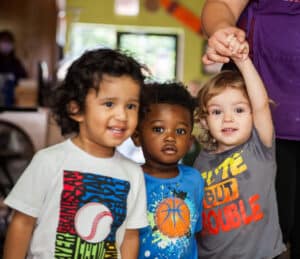 Early childhood educators serve young children in their most critical developmental years and lay the foundation for lifelong learning and wellbeing. They provide stable and nurturing relationships that promote brain development and build the social, emotional, and academic skills of our youngest learners who will become our future workers, innovators, and leaders. Yet they are often underappreciated and under-compensated. Unfortunately, low wages, combined with limited access to professional development and growth opportunities, created a workforce crisis, only exacerbated by the COVID-19 pandemic.
Early childhood educators serve young children in their most critical developmental years and lay the foundation for lifelong learning and wellbeing. They provide stable and nurturing relationships that promote brain development and build the social, emotional, and academic skills of our youngest learners who will become our future workers, innovators, and leaders. Yet they are often underappreciated and under-compensated. Unfortunately, low wages, combined with limited access to professional development and growth opportunities, created a workforce crisis, only exacerbated by the COVID-19 pandemic.
It’s important that educators get the training and support they need to grow their knowledge and skills and collaborate and share best practices with colleagues. Support from Ballmer Group allowed Start Early to expand professional development opportunities to prepare the workforce to meet the ever-changing needs of young children and families. Today, we support nearly 300,000 early childhood professionals and impact 1.5 million young children annually.
Our work is focused on creating virtual and face-to-face training and resources on topics of vital importance to our childcare and workforce, including family economic mobility, equity, recruitment, and family engagement. In 2020, Start Early was awarded one of four highly influential Office of Head Start National Centers — the National Center for Parent, Family and Community Engagement.
Equitable Systems Create Endless Possibilities for ALL Children and Families
At Start Early, we are focused on driving forward a unified prenatal-to-five system. We have long believed that universal programs, with a common definition of quality, a shared measurement for assessing progress and the ability to scale innovation and best practices can have transformative and sustained impact on millions of children.
We’ve continued to grow our systems-building work and now partner with advocates and public sector leaders in 17 states, promoting more equitable practices and policies that benefit 6.5 million children. We recently supported states and communities in maximizing American Rescue Plan Act funds to advance their early childhood programs and services.
We are grateful for Ballmer Group’s continued support of Start Early’s mission. As champions of early learning, we are committed to helping families with young children thrive. We will continue to deepen our support for early childhood professionals. And we will stay relentlessly focused on driving forward an early learning system that’s seen as an integral part of our nation’s commitment to children, families and future generations.
Ballmer Group is committed to improving economic mobility for children and families in the United States. They fund leaders and organizations that have demonstrated the ability to reshape opportunity and reduce systemic inequities. To learn more, visit: www.BallmerGroup.org.
More Like This
We are excited to share our annual 2022 Year in Review, which showcases and celebrates accomplishments and growth from the last fiscal year (July 1, 2021 – June 30, 2022).
In 2022, we celebrated our 40th anniversary and continued to expand and refine our services to children and families.
Through our innovative and comprehensive work at local, state and federal levels, Start Early impacted nearly every facet of the early education system with a deliberate focus on reaching more young children through quality early learning and care experiences that can set them up for a lifetime of health and success.
This work would not have been possible without the collaboration and efforts of our partners. We are thankful to all of our supporters over the past 40 years for their help in making this work a reality. We are champions for early learning, and together, we can transform lives.
Ahead of Illinois’ midterm and gubernatorial elections next month, in a recent survey, voters across the state made it clear that they want to see increased attention towards early childhood services. In fact, the vast majority of survey respondents believe that investing in early childhood education and care is a good use of taxpayer dollars – and most would even be willing to pay more in taxes to fund it.
Start Early conducted this latest survey on behalf of state advocates to measure the level of support for early education among voters. The results were unequivocal – Illinois voters value early childhood education and care and want to see government action.
Eight in 10 voters say investing in early childhood education and care is a good use of taxpayer dollars. Among key groups like Black voters (55%) and those in Chicago’s suburbs (53%), a majority believe it to be a very good use of tax dollars. A majority of voters (56%), including nearly 75% of Black voters, went even further to say they are willing to pay a little more in taxes if it meant the state had better services for families with young children.
While partisanship continues to divide voters in many other policy areas, the survey’s findings also demonstrated that the early childhood education and care discussion goes far beyond political lines: 90% of Democrats, 73% of Independents and 70% of Republicans support government action and investment in early childhood programs and services.
Home to approximately 800,000 children under age 5, Illinois has a prominent history of investing in early care and education, spanning four decades under leadership of both Republican and Democratic state administrations. As the state prepares for its midterm elections, most timely is the survey’s bipartisan finding that most voters (70%) would feel more favorably towards a candidate who prioritizes an increase in funding for early childhood services.
“While Illinois has long been at the forefront of early learning and care innovations and investments, our system, like that of most states, has its challenges and real shortcomings,” Start Early Vice President of Illinois Policy Ireta Gasner says. “Without decisive action by our elected Governor and state legislators, critical components of the system will collapse – leaving countless young children and those who care for them behind.”
Decades of research have proven that quality early childhood programs can help break the cycle of poverty for generations to come and can change the trajectory of a child’s life toward healthy development and success. Yet, families – particularly those in communities left under-served – continue to face impossible challenges in accessing such early learning experiences.
As Illinois works to mitigate these challenges, often brought on by systematic inequities, voters reported that funding services for children experiencing homelessness and for children with disabilities or developmental delays should be priority focus areas of the state. Voters also ranked early childhood services as the second most important way to address the root causes of crime, a traumatic reality for far too many young children.
Start Early and its advocate partners across the state are passionately working to advance transformational change of the early childhood system in order to reach families and those who provide early learning services. This powerful survey data reaffirms that Illinois voters share advocates’ desires, and offers policymakers a renewed opportunity this upcoming legislative session to redouble efforts to make early learning a reality for all young children.
Conducted in partnership with Global Strategy Group, the survey of 609 registered voters in Illinois took place between September 8 – 12, 2022, and an intentional focus was placed on ensuring diverse demographic and geographic representation among voters. Interviews were conducted over the phone and text to web.
Key Findings:
- A majority of overall voters say early childhood education and care is a good use of taxpayer dollars.
- Eight in ten voters say investing in early childhood education and care is a good use of taxpayer dollars.
- Among key groups like Black voters (55%) and those in the Cook suburbs (53%),a majority believe it to be a very good use of tax dollars.
- Taking action and using taxpayer dollars to invest in early childhood education and care garners bipartisan support across the political spectrum with 90% of Democrats, 73% of Independents, and 70% of Republicans believing it is a good investment.
- Most voters are even willing to pay more in taxes to fund early childhood and care services.
- A majority of voters (56%) say they are willing to pay a little more in taxes if it meant the state had better services for families with young children, including nearly three-quarters of Black voters (72%).
- Half of voters believe the state government is not spending enough on services for young children and their families, even higher among parents (54%), especially parents of color (52%).
- Voters believe elected officials are not talking about or focused enough on early childhood services.
- Half of voters believe their elected officials are not talking enough about early childhood services (52%) and believe they are not focused enough on the issue (53%).
- This is especially true of key groups like Independents, of whom two-thirds (68%) believe their elected officials are not talking enough about the issue.
- Similarly, parents of those under the age of six overwhelmingly believe elected officials are not talking about (67%) or focused enough (66%) on early childhood services.
- According to voters, the state government does not do enough to help new parents and families meet their responsibilities.
- About half of voters overall believe the state government is not doing enough to help new parents and families.
- This increases to nearly two-thirds of voters of color (65% of Black voters and 66% of Hispanic voters).
- Support for this issue goes beyond party lines and has widespread support: 80% of Democrats, 58% of Independents, and 51% of Republicans want the state to fund programs aimed at making childcare more affordable
- There are many other specific services or programs related to early childhood that share support from a majority of the electorate.
- Helping those who face the steepest challenges, like homeless children and those with disabilities, is extremely popular across partisan lines.
- Even 69% of Republicans believe the state should be doing more to fund services to care for children who are homeless and 75% of Independents also feel the same way.
- Early childhood services are seen as a way to address crime.
- Illinois voters are concerned about crime (32% rank it as their first or second most important issue) and want to prioritize addressing the root causes of crime early in children’s lives (60%), over short-term actions like tougher sentencing.
- Addressing root causes are prioritized across the board, including independents (55%) and those in the collar counties (60%).
- Providing early childhood services ranks second as the most important way to address these root causes.
More Like This
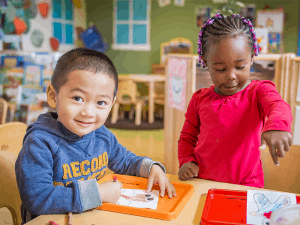 Parents in Chicago often enroll their children ages 3-5 in community-based organizations because they love and trust their local early learning program and because the program provides more convenient hours and comprehensive, year-long services for families. With support from Crown Family Philanthropies, Start Early launched a new initiative this summer in partnership with Chicago Public Schools (CPS) and Chicago’s six federally funded Head Start grant recipients to make special education services more accessible for the city’s children ages 3-5 who are enrolled in community-based Head Start programs.
Parents in Chicago often enroll their children ages 3-5 in community-based organizations because they love and trust their local early learning program and because the program provides more convenient hours and comprehensive, year-long services for families. With support from Crown Family Philanthropies, Start Early launched a new initiative this summer in partnership with Chicago Public Schools (CPS) and Chicago’s six federally funded Head Start grant recipients to make special education services more accessible for the city’s children ages 3-5 who are enrolled in community-based Head Start programs.
Currently in the city of Chicago, special education services are not provided in community-based settings where many children are enrolled. Instead, children attend both their community-based program and a school-based program, which involves bus rides and multiple transitions between classrooms in one day. Some parents who rely on community-based settings for early learning may forgo these services that their child needs to avoid distress and challenging behaviors that can follow the multiple transitions.
Even when children receive their special education services in a CPS classroom, those supports do not follow them to their community-based setting. This leaves children unable to fully access and participate in the classroom and it leaves teachers without the support they need to ensure the best quality educational experience. As a result, children may experience barriers to healthy development. The current system also poses long-term challenges for CPS as they work to ensure equitable access to special education and kindergarten readiness for all students.
Support Our Work
Together, when we start early, we can close the opportunity gap and ensure every child has a chance to reach their full potential.
The goal of this project is to ensure access to inclusive special education services for all children with disabilities enrolled in community-based early childhood programs in Chicago. To this end, we are working in partnership with families and educators to develop, implement, assess, and institutionalize feasible strategies and approaches for delivering special education services to children with Individualized Education Plans (IEPs) onsite in the Head Start programs in which they are enrolled.
Start Early staff are nationally recognized leaders in special education for young children. Learn more about Start Early’s recommendations for strengthening early childhood inclusion for young children with disabilities, and contact us to learn how you can support high-quality, accessible education for all young children.
The Crown family has worked for decades alongside Start Early to increase access to equitable, high-quality early education and care for all children and families in Chicago, including recent support for the launch of Every Child Ready Chicago, a public-private partnership to support access to high-quality early childhood education in the city.
Start Early remains grateful to Crown Family Philanthropies as we champion early learning and care and close the opportunity gap for our youngest learners.

